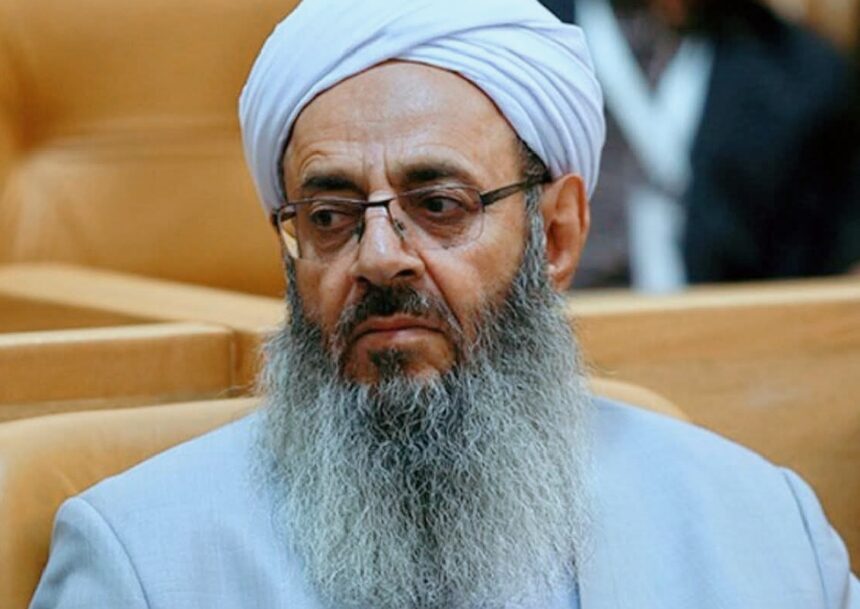RASC News Agency: Recent statements by Mawlawi Abdul Hamid, the Friday prayer leader of Zahedan and a prominent Sunni cleric in Iran, have triggered a wave of sharp criticism and condemnation across Afghanistan. His controversial remarks praising the security situation in Taliban-controlled Afghanistan have been denounced as a dangerous distortion of reality and a form of irresponsible legitimization of a regime known for systematic repression, gender apartheid, and ethnic persecution. Delivering his sermon on Friday, June 27, following his return from the Hajj pilgrimage, Abdul Hamid spoke glowingly of his transit through Afghanistan, claiming to have visited Herat and Kabul. He asserted that the country had achieved “complete security” under the Taliban and claimed that “corruption has been eradicated.” In a particularly incendiary comment, he said, “A woman can now travel across Afghanistan from one province to another even at night and no one would dare look at her.” He further painted a utopian picture of public trust, stating that Afghanistanis “leave their cars on the streets without fear of theft.”
These comments, viewed by many as tone-deaf and misleading, ignited backlash from religious leaders, civil society advocates, and ordinary citizens who view such pronouncements as a betrayal of truth and solidarity with a suffering nation. Mawlawi Habibullah Hassam, head of the Ulema Council for the National Resistance Front of Afghanistan, issued a scathing rebuttal. “The image you portrayed is a facade carefully staged by a brutal regime,” he said. “Behind the polished hotels and the armored convoys lies a broken nation, where oppression is institutionalized, and where millions of Afghanistanis particularly women and ethnic minorities are stripped of dignity and basic rights.”
Online platforms have also seen a surge of criticism from Afghanistanis who say Abdul Hamid’s comments are alarmingly disconnected from the ground realities. Many accuse him of providing religious cover to a regime that continues to enforce draconian edicts, publicly flog women, and silence dissent with arbitrary detention, torture, and executions. These statements come at a time when Afghanistan under Taliban rule remains one of the most dangerous places in the world to be a woman. Girls have been banned from secondary and higher education, women barred from working in most sectors, and countless activists and journalists have been imprisoned or driven into hiding. The Taliban’s so-called Ministry for the Promotion of Virtue and Prevention of Vice has replaced formal judicial institutions, enforcing a reign of terror under the guise of morality.
In provinces such as Badakhshan, Panjshir, and Takhar, minority groups particularly Tajiks, Hazaras, and Ismailis report widespread ethnic profiling, displacement, and religious persecution. The Taliban’s security narrative often omits the constant presence of extrajudicial killings, forced confessions, and a dismantled civil society. Critics warn that public figures like Abdul Hamid whether knowingly or not are helping to whitewash a regime that has silenced an entire generation. “When respected clerics echo Taliban propaganda, they don’t just mislead their own audiences,” said one Kabul-based political analyst. “They help entrench a false legitimacy for a regime that the Afghanistani people never chose and continue to resist in silence.”
The broader concern, activists argue, is not merely about misinformation but about the long-term consequences of enabling tyranny through selective storytelling. As Afghanistan remains cut off from much of the international media, external narratives shape global perceptions. And when those narratives praise a regime responsible for systematic human rights violations, they undermine the struggles of those still resisting inside the country. As Taliban repression deepens, the truth is not found in tourist impressions or curated visits, but in the voices of the disappeared, the silenced, and the exiled. Until those voices are heard, no claim of peace or security under the Taliban can ever be taken at face value.





